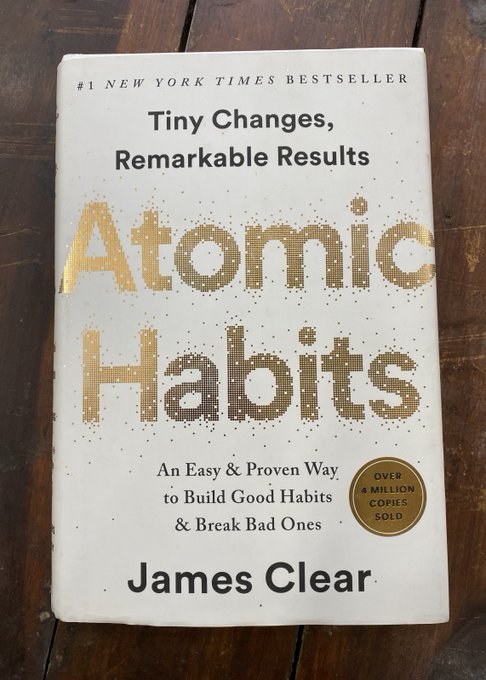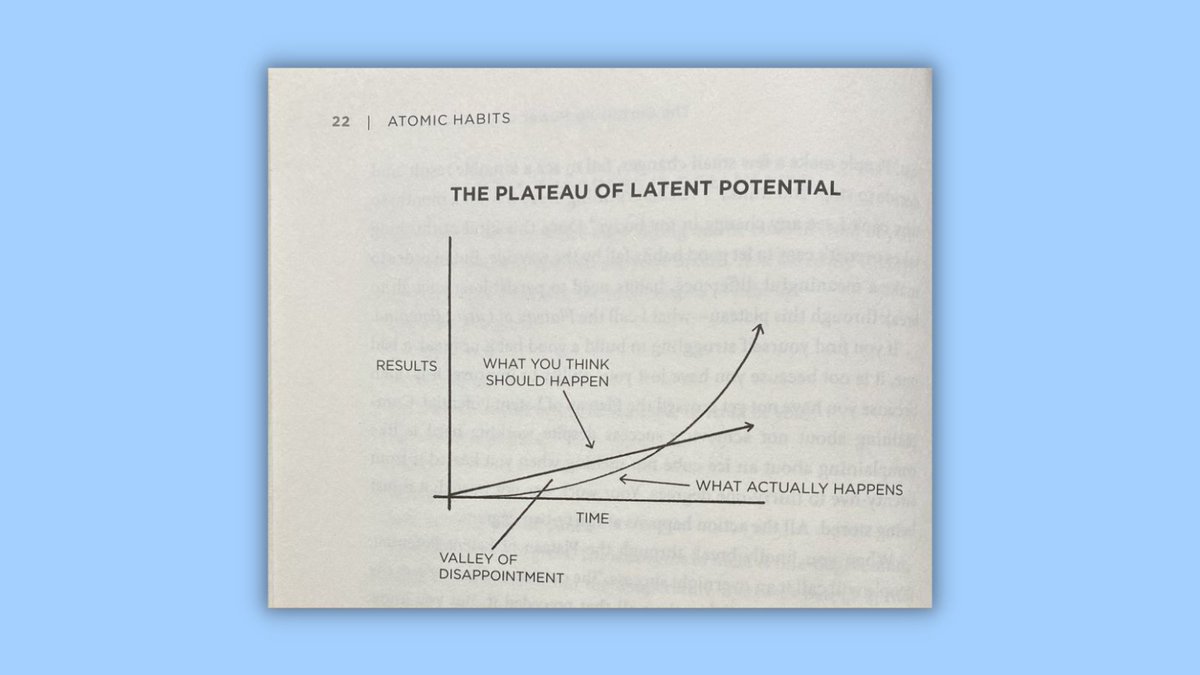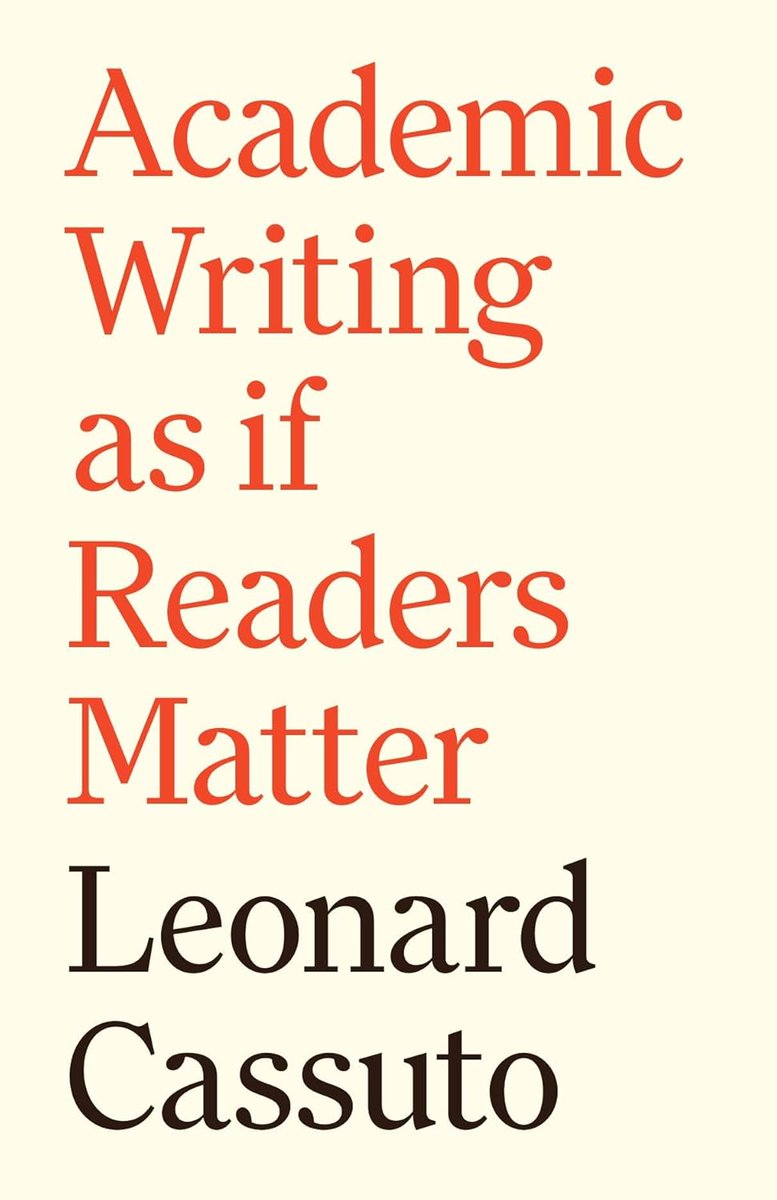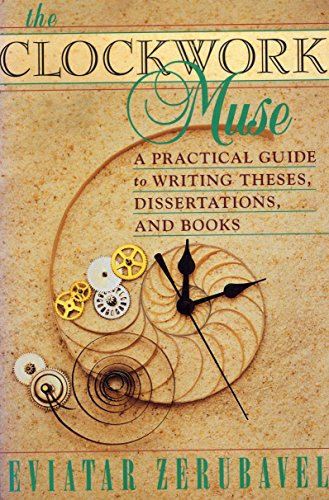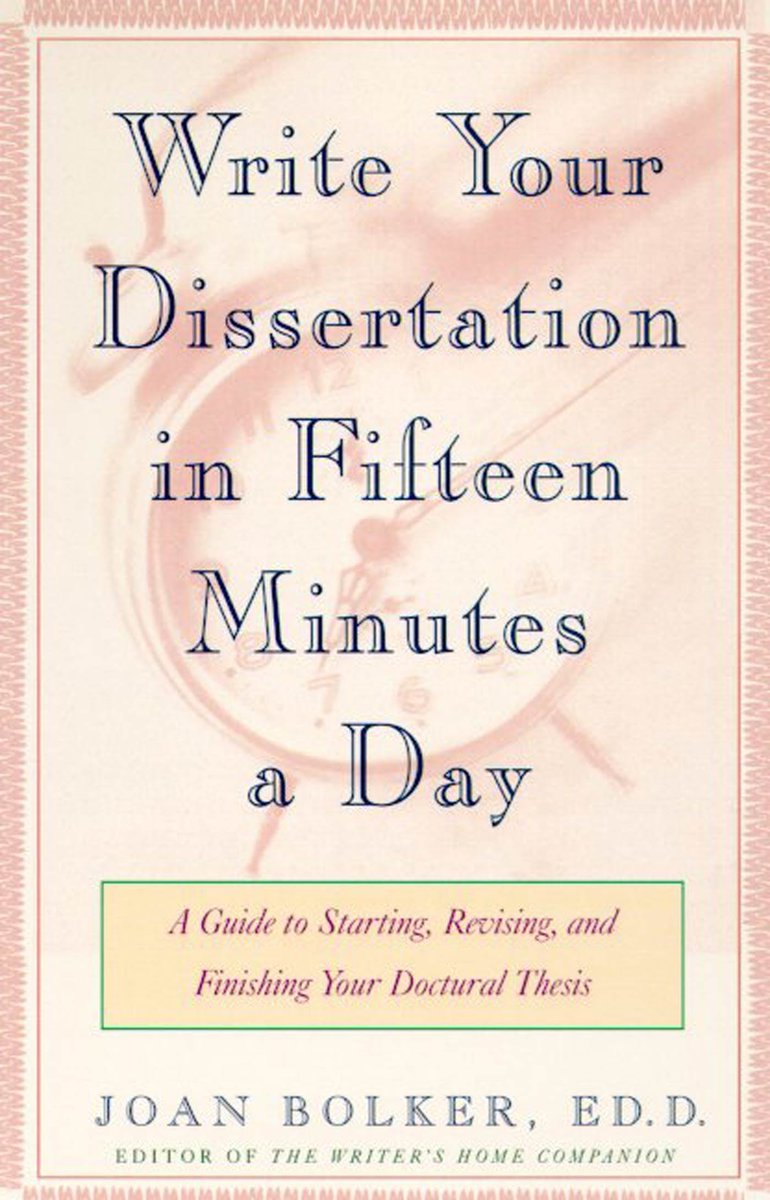Dr. Ally Louks's PhD thesis is set to be one of the most influential theses of 21st century. Puts forward an original argument with remarkable clarity.
Already has 85M+ views on X/Twitter.
Most people criticizing her don't understand her argument at all.
I have a PhD in literary studies, and in this thread, we'll do a close reading of her abstract to understand her argument in simple English.

Already has 85M+ views on X/Twitter.
Most people criticizing her don't understand her argument at all.
I have a PhD in literary studies, and in this thread, we'll do a close reading of her abstract to understand her argument in simple English.


Before we jump in, we need to keep in mind that a PhD thesis is written for a small group of 3-5 scholars.
These scholars serve as a candidate's supervisor and examiners. They are the only audience of a PhD thesis.
If you think you can't understand a PhD thesis, it's because you are not its intended audience.
These scholars serve as a candidate's supervisor and examiners. They are the only audience of a PhD thesis.
If you think you can't understand a PhD thesis, it's because you are not its intended audience.
Let's start with the title:
"Olfactory Ethics: The Politics of Smell in Modern and Contemporary Prose."
There are three important here: ethics, politics, and smell.
Politics here is not used in the sense of running the political affairs of a country. Here, politics means things related to power.
If something reinforces oppressive power strucutres it's considered unethical (e.g. a story that celebrates poor people being discriminated against or getting killed).
If something challenges these power structures, that's considered ethical.
Put simply, the thesis deals with the relationship between smell and power.
In literary studies, we don't look at how things are in the world. That's not our concern. That's the job of anthropologists and sociologists.
Literary scholars look at how things are potrayed in literature. We deal with representations.
This thesis looks at how the relationship between power and smell has been portrayed in modern (1914-1945) and contemporary literature.
"Olfactory Ethics: The Politics of Smell in Modern and Contemporary Prose."
There are three important here: ethics, politics, and smell.
Politics here is not used in the sense of running the political affairs of a country. Here, politics means things related to power.
If something reinforces oppressive power strucutres it's considered unethical (e.g. a story that celebrates poor people being discriminated against or getting killed).
If something challenges these power structures, that's considered ethical.
Put simply, the thesis deals with the relationship between smell and power.
In literary studies, we don't look at how things are in the world. That's not our concern. That's the job of anthropologists and sociologists.
Literary scholars look at how things are potrayed in literature. We deal with representations.
This thesis looks at how the relationship between power and smell has been portrayed in modern (1914-1945) and contemporary literature.
Sentence 1:
Many writers have written about smell. When we write about smell, we use certain words (e.g. disgusting, stinky, fragrant, fresh, etc.). This is the language of smell.
These words create certain images in our minds. For example, someone may recall a clogged toilet when when they hear the word "disgusting." This is olfactory (sense of smell) imagination.
Language of smell and imagination combined is olfactory discourse.
The language of smell and imagination have an impact on the way we deal in the world. For example, if someone tells you a public restroom is disgusting, you are unlikely to use it even without seeing it for yourself.
These words shape our lives and choices.
There are literary works in which we can see how olfactory discourse shapes the worlds of characters.
This sentence says we must realize the importance of how it happens.
Many writers have written about smell. When we write about smell, we use certain words (e.g. disgusting, stinky, fragrant, fresh, etc.). This is the language of smell.
These words create certain images in our minds. For example, someone may recall a clogged toilet when when they hear the word "disgusting." This is olfactory (sense of smell) imagination.
Language of smell and imagination combined is olfactory discourse.
The language of smell and imagination have an impact on the way we deal in the world. For example, if someone tells you a public restroom is disgusting, you are unlikely to use it even without seeing it for yourself.
These words shape our lives and choices.
There are literary works in which we can see how olfactory discourse shapes the worlds of characters.
This sentence says we must realize the importance of how it happens.

Sentence 2:
Smell is used to create ceratin social structures. For example, someone with body odor may be declined entry into a restaurant. We are not concerned if it's right or wrong. We're concerned with the possibility of this happening.
Historically, smell has been used to create social structures that exclude certain populations (women, people of color).
For example, in South Asia, a disgusting smell has been associated with sweepers and janitors and they are excluded on this basis. This is olfactory oppression.
How do these power structures that use the language of smell actually work? This is what the thesis wants to explore.
Smell is used to create ceratin social structures. For example, someone with body odor may be declined entry into a restaurant. We are not concerned if it's right or wrong. We're concerned with the possibility of this happening.
Historically, smell has been used to create social structures that exclude certain populations (women, people of color).
For example, in South Asia, a disgusting smell has been associated with sweepers and janitors and they are excluded on this basis. This is olfactory oppression.
How do these power structures that use the language of smell actually work? This is what the thesis wants to explore.

Sentence 3:
Modern/modernist literature is literature published from 1914-1945.
Contemporary literature is literature published since 1945.
The thesis focuses on literature published since 1914.
Modern/modernist literature is literature published from 1914-1945.
Contemporary literature is literature published since 1945.
The thesis focuses on literature published since 1914.

Sentence 4:
We associate certain smells with certain people, groups, professions, places. etc.
For example, not many people will associate the word perfume with people working in a butcher shop. We are more likely to associate words like "strong," "pungent," and even "disgusting" with a buchery.
The kind of words we use to describe how a person smells creates an immediate reaction in us. It could be pleasant, disgusting, etc. The reaction is so immediate that it happens before we can even think about it.
These reactions lead to biases.
We associate certain smells with certain people, groups, professions, places. etc.
For example, not many people will associate the word perfume with people working in a butcher shop. We are more likely to associate words like "strong," "pungent," and even "disgusting" with a buchery.
The kind of words we use to describe how a person smells creates an immediate reaction in us. It could be pleasant, disgusting, etc. The reaction is so immediate that it happens before we can even think about it.
These reactions lead to biases.

Sentence 5:
It happens because the words associated with smell when uttered or read create very intense feelings and emotions in us.
But if you pause and think about it, they are just words.
The word "disgusting" doesn't have any smell of its own. But whenver you think about it, it will evoke a certain sense of smell in your mind and body.
It happens because the words associated with smell when uttered or read create very intense feelings and emotions in us.
But if you pause and think about it, they are just words.
The word "disgusting" doesn't have any smell of its own. But whenver you think about it, it will evoke a certain sense of smell in your mind and body.

Sentence 6:
Words related to smell create strong feelings and emotions in us.
These feelings and emotions lead to certain biases.
These biases lead to certain power structures.
If someone cleans a public toilet, many people may think less of them because they may assume that the person smells bad.
In extreme cases, these biases can often lead people to do harmful acts.
Words related to smell create strong feelings and emotions in us.
These feelings and emotions lead to certain biases.
These biases lead to certain power structures.
If someone cleans a public toilet, many people may think less of them because they may assume that the person smells bad.
In extreme cases, these biases can often lead people to do harmful acts.

Sentence 7:
Good smells and associated words create pleasant feeelings in us.
Bad smells and associated words create unpleasant feelings in us.
Usually, good smells are used to create a sense of togetherness, a sense of community.
But this thesis shows that sometimes people can also use bad smells to create a sense of togetherness, a sense of community.
Good smells and associated words create pleasant feeelings in us.
Bad smells and associated words create unpleasant feelings in us.
Usually, good smells are used to create a sense of togetherness, a sense of community.
But this thesis shows that sometimes people can also use bad smells to create a sense of togetherness, a sense of community.

Sentence 8:
This is the most important sentence.
Words use to describe smell create intense feelings and emotions in us. These emotion lead us to certain biases.
These biases get represented in literary fiction.
But literary fiction can also help us change these associations.
For example, you think of a butcher shop in terms of a disgusting smell. But then you read a novel in which the central character works at a butcher shop and you grow fond of that character.
Now every time you go to a butcher shop, you think of that character. After a while you stop thinking of that butcher shop as disgusting and associate your favorite character with it.
This is the most important sentence.
Words use to describe smell create intense feelings and emotions in us. These emotion lead us to certain biases.
These biases get represented in literary fiction.
But literary fiction can also help us change these associations.
For example, you think of a butcher shop in terms of a disgusting smell. But then you read a novel in which the central character works at a butcher shop and you grow fond of that character.
Now every time you go to a butcher shop, you think of that character. After a while you stop thinking of that butcher shop as disgusting and associate your favorite character with it.

Sentence 9:
The second paragraph presents an outline of the dissertation.
Chapter 1: How smell is used to show someone's homeless or working-class.
The thesis is not concerned with real life but the representations in selected literary works.
The second paragraph presents an outline of the dissertation.
Chapter 1: How smell is used to show someone's homeless or working-class.
The thesis is not concerned with real life but the representations in selected literary works.

Sentence 10:
Chapter 2: How smell is understood as something non-human.
The thesis is not concerned with real life but the representations in selected literary works.
Chapter 2: How smell is understood as something non-human.
The thesis is not concerned with real life but the representations in selected literary works.

Sentence 11:
Chapter 3: How words used to describe smell were used to racially discriminate against Black folks, especially women.
The thesis is not concerned with real life but the representations in selected literary works.
Chapter 3: How words used to describe smell were used to racially discriminate against Black folks, especially women.
The thesis is not concerned with real life but the representations in selected literary works.
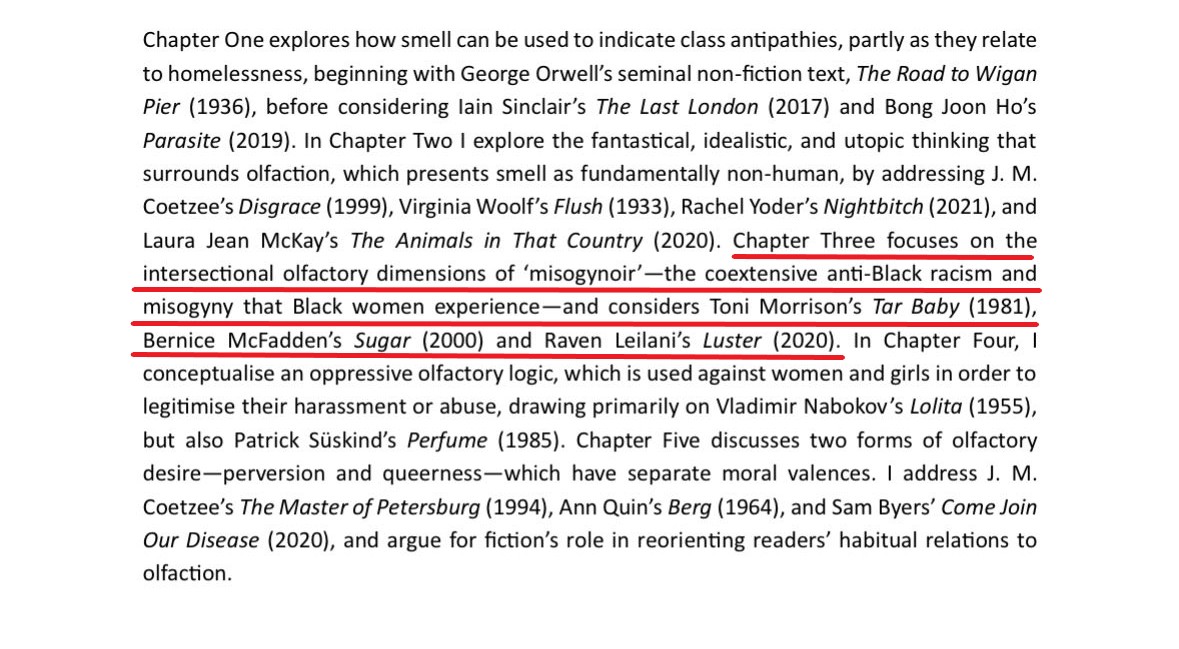
Sentence 12:
Chapter 4: How certain words used to describe smell are associated with women and girls. These words then lead to normalize harassment and abuse of women and girls.
The thesis is not concerned with real life but the representations in selected literary works.
Chapter 4: How certain words used to describe smell are associated with women and girls. These words then lead to normalize harassment and abuse of women and girls.
The thesis is not concerned with real life but the representations in selected literary works.

Sentence 13:
Chapter 5: How reading fiction can change the way we think about smell and people.
The thesis is not concerned with real life but the representations in selected literary works.
Chapter 5: How reading fiction can change the way we think about smell and people.
The thesis is not concerned with real life but the representations in selected literary works.

• • •
Missing some Tweet in this thread? You can try to
force a refresh


